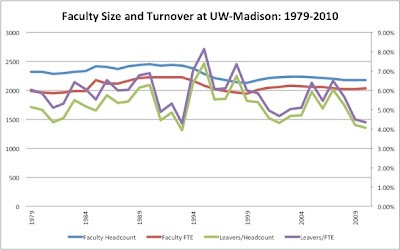Reform UW System, But Don't Render it Toothless
A busy first week of classes caused me to miss last week's UW System Board of Regents meeting , an event now known for its dramatic highlights and active Twitter feed. I was especially disappointed to miss it because it was the initial unveiling of the work UW System has done over the summer to re-orient itself given the recent legislative changes granting its member institutions more fiscal autonomy. The main thrust of the documents shared at the meeting appears to be a desire to accomodate the wishes of (some of?) the UW chancellors for more decision-making authority and less oversight from the System office. There will be a downsizing of that office, and a corresponding restructuring. I have heard a few folks suggesting that these moves look like the New Badger Partnership policy advanced by former chancellor Biddy Martin last spring. Reportedly, they think that those of us who felt the NBP was ill-advised, given its obvious leaning towards privatization, should also be upset...
